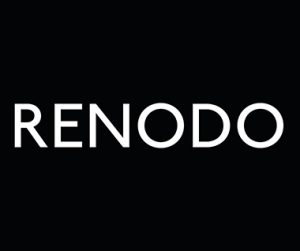The content consultant and analyst Roberta Franceschetti offered in Readmagine 22 a presentation on the last trends of younger generations in consumption of content. She shared very specific insights about the new relation of kids and teenagers with books, comics, webtoons, TV or manga and how there is an increasing trend of transmedia consumption.
In this video you can follow the remarkable presentation by Franceschetti and discover some of the emerging trends and her suggestions about the impact on the business models and reading habits.
For the teenagers we are in a visual age in which hybrid modes of communication are natural, such as memes chats and with the spread of Iconotexts there is a need of new skills for decoding and specific reading skills. We can see that those “Iconotexts on social media are popular with Gen Z, such as TikTok and IG, where you have images and videos complemented by text captions”. According to Franceschetti the reason behind the increasing success of comics and graphic novels among kids and children is because the share or require the same reading skills.
The first takeaway is “that we should engage readers with different reading experiences and conversations which are meaningful for them, which use codes they are familiar with and which they like”.
Within this context the so called “deep reading” is typically a lonely experience with a novel on a print book. The new experience are cases as Wattpad which manages to have kids and young adults reading long novels online and, what is more relevant, transforming deep reading into a social experience. They don´t read alone, but together with 94 million readers (the founder of Wattpad, Allen Lau, said that readers spend more time reading comments that the text itself).
Franceschetti pointed that something similar is happening with Webtoon, the most important publishing and self-publishing platform for webtoons. The webtoons have a totally different format and this is probably the reason why it is not that easy to adapt them to a graphic novel format; in webtoon users can read, comment, translate and create their own stories.
If on a webtoon episode, you can find thousands of thread of comments, with hundreds of answers and reactions by other readers, there is little doubt that this kind of reading becomes a social experience. There is interaction between readers and the interaction between the author and the audience, because in webtoon or in social media readers ask for more information, plot, come up with theories or make predictions. A cartoonist might apologize for publication delays, could introduce new projects and open Q&A sessions, because authors need to nurture the relationship as it is linked to story’s ranking (number of subscriptions, reads, likes and comments).
The second Franceschetti’s conclusion is that “we should engage readers with a social experience, a space or a moment in which they can talk about the stories they love and create new narratives starting from the stories they like”.
This trend has consequences for the type of business models that are emerging. This is the case of pay per view model, based on the desire to continue reading a story the readers like. As Roberta Franceschetti underlined “the serial structure fits perfectly with this model”, fuelled by cliff-hangers of tv series productions. In the case of finished stories, the first episodes are for free and the following go in a daily pass. In the case of ongoing stories, the new episodes are released for free once a week.
Webtoon is a partner of Patreon, a platform that delivers exclusive content only for paying fans (previews, preparatory sketches, additional content and “non-canon” and “adult” versions). This model implies different levels of payment both for the author and for fans.
The third conclusion offered by Franceschetti was: “Nurture your readers with exclusive content and experiment with new business models”.
The most successful narrative worlds tend to migrate and adapt (from book to film, from TV series to video game …) and webtoons are no exception. For instance, Lore Olympus, from webtoon to graphic novel or the manga The Tower of God into an anime on Warner Media’s Crunchyroll platform, or the webtoon Sweet Home of the zombie thriller genre, into a Netflix live action TV series. In fact, Netflix has a tag: “Korean Dramas based on webtoon”. The community of fans supporting these stories encourages film studios to invest in TV series and films.
The success achieved by Lore Olympus probably convinced Webtoon to announce Unscrolled, a project which plans to publish some of the most successful series, such as True Beauty, Tower of God (already published as a manga) and Cursed Princess Club. It was conceived jointly with WattpadBooks, the division that publishes the most read stories on Wattpad.
The fourth takeaway from Franceschetti: “tear down fences and curate your stories across different media”.
Each year Wattpad is publishing data on the reading trends on its platform, but the 2021 information was less extensive and interesting, they seem to be less willing to share for free insights on users, because the data are their “superpowers”, data are precious, they are a key feature of Wattpad business.
Wattpad collects and analyse data to find potentially successful stories. They use machine learning to discover great stories; they use mathematical models to analyse language, to find stories similar to past hits or to evaluate readability. This is used not only to find new bestsellers on Wattpad, but also to identify stories that can be published through Wattpad books or become a movie or a tv series.
Wattpad is not the only platform that is using data to identify potentially successful content: Epic! Is a digital reading platform which targets children and kids up to 12 years old. It includes 40,000 books by publishers across the world. It has launched in 2019 Epic Originals as a project of exclusive books devised to meet children preferences, according to reading data collected by the platform.
This is another conclusion: content sharing platforms have extended their role: from content distributors to producers of original content.
What happens if the ones who have data and insights of media consumers start to produce content?
Roberta Franceschetti has been working in publishing and children’s media for the past 20 years. She co-founded Mamamò, a website that promotes media education for children, and ContentMakers, a creative studio that produces content for kids and families across different media.
A journalist and content creator, she graduated in literature and earned a Master of Arts in Design History at the Royal College of Art, London and a postgraduate specialization in digital publishing at the Politecnico di Milano. She’s been a member of the jury of the BolognaRagazzi Digital Award (Bologna Children’s Book Fair).
Roberta is co-author of «Youtuber. Manuale per aspiranti creator» (Editoriale Scienza), a children’s guide to Youtube and videomaking, and «Educare ai nuovi media. Percorsi di cittadinanza digitale per l’educazione civica» (Pearson Academy) a media education guide for teachers. She’s also co-author of the story of the animated series «MeteoHeroes».





